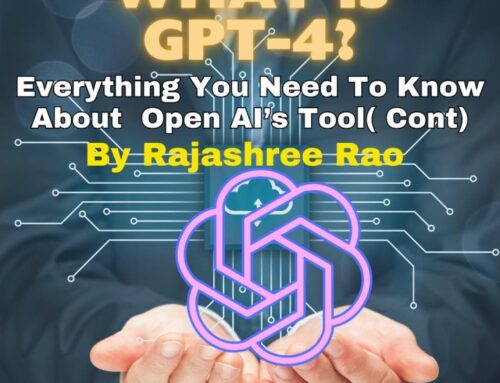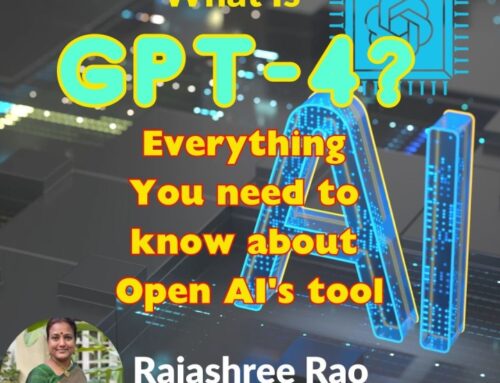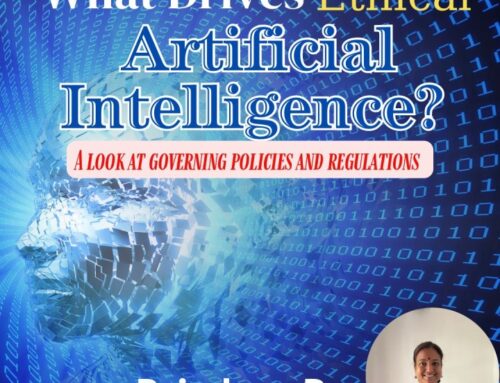Artificial Intelligence (AI), Deep Learning, and Machine Learning are all related technologies that are revolutionising the world, and right from countering terrorism to space exploration or for its innovations and breakthroughs in the industry has made great leaps for both better or worse. One of the significant challenges in AI is an ‘alchemy’ which has technological reasoning. However, many people’s expectation of AI that originates it as sci-fi and experts claim that the AI is a danger to humanity and AI will become superior to humans and could ultimately replace human beings. A power struggle between “Man vs Machine.”
AI is designing machines which can think. It is the intelligence of machines. The discussions however about the significance of AI in human life has gained momentum in the recent years. Whether AI is a boon or a bane for the future of human existence is an ongoing debate since the very idea to develop an AI is to make the lives of humans more comfortable. The scientists of AI want to bring in the emotional quotient (EQ) to the machines along with the general intelligence. Now let us try to understand some of the key pros and cons of AI.
Advantages of Artificial Intelligence (AI):
AI is the most complex technology in nature as it uses an extremely complicated mixture of mathematics, computer science, and other complex science. The complex programming enables these machines to replicate the cognitive capabilities of the human beings.
1. Reduction of Errors:
AI helps humans in significantly reducing the error and the potential of reaching accuracy with a higher degree of precision a possibility. AI is widely applied in various research studies such as exploration of space. Intelligent Robots are being sent to explore outer-space as they are machines which have far more resistance power and greater ability to endure the hostile and space atmosphere. The Robots are built and acclimatised in the way they cannot be disfigured or modified or breakdown in the hostile environmental conditions.
2. Exploration of difficult Field Processes:
AI and the science of robotics is put to use in industries such as fuel exploration or mining processes. These complex machines are also used for exploring the ocean floor by overcoming the human limitations. The programmed ability in a robot, enables them to perform far more laborious and tough work with greater ease and responsibility without wearing themselves out so quickly.
3. Applications in the day-to-day activities:
Computing methods for learning, automated reasoning and perception has become a common phenomenon in our daily lives. Right from the lady Siri, Alexa, or Cortana are at our service to help us out. Today, navigation using GPS has made our life so simple that we can get on the roads for long drives or any location on the planet earth. The smartphone is an apt example of how we use AI in our everyday life. In the utilities, we find that the AI can predict what we are typing and correct the human errors in grammar and spelling and this is machine intelligence at work.
Similarly, when you take a photo, the AI algorithm identifies and recognises the person’s face and tags the respective individuals when we post the photographs on the social media sites. AI is also widely used by banking and financial institutions to manage and organise data. AI helps in fraud detection in smart card systems.
4. Smart Intelligent Digital Assistants:
Today, we have entered an era where advanced organisations use digital assistants which can interact with the users on behalf of their Masters saving the time and need of human resources. Furthermore, in case of the artificial thinkers, the emotions do not come in the way of their rational thinking, and hence they are not distracted. Emotions are connected to the moods which can cloud the judgement and impact the human efficiency. The total absence of feelings makes the robots think and act logically making them take the right program decisions making the machines intelligent.
5. Jobs or Tasks that are Repetitive:
Jobs that are monotonous and repetitive can be performed by the machines faster and efficiently than a man and also increasing the productivity by programming the robots to do multi-tasking and tasks that are dangerous. The parameters of the machines, unlike the humans, can be adjusted which are solely based on the speed and time. Similarly, when we humans play games with a computer, we are interacting with the AI. The machine intelligence enables in planning the moves in a game in response to our movements. Gaming is one of the Industry where AI’s benefits are widely used. The AlphaGo program proved it by defeating the third highest ranked Go player in the world. A human cannot comprehend the model which the computer has built for itself which got proved in this case.
6. Applications in the Healthcare:
AI has been making significant breakthroughs in the medical field. Doctors are assessing the patient’s health risks with the help of artificial machine intelligence. AI also educates them about the side effects of various medicines. Professionals in medicine are often trained with the artificial surgery simulators which find broad application in detecting and monitoring the neurological disorders as it can simulate the brain functions. Robots are also commonly used to help patients with mental health conditions to come out of their depression and to remain active. The most popular application of AI is the radiosurgery which is used for operating tumours helping the operation without causing any damages to the surrounding tissues.
7. No Break-times:
Unlike humans, machines do not require frequent bio breaks or Coffee/Tea breaks. They are programmed to work long hours and have the ability to perform continuously without being bored, distracted, and tired of doing the monotonous tasks over and over again with absolute perfection, efficiency and productivity.
Disadvantages of Artificial Intelligence (AI):
The hype around AI technology is intense despite the fact that AI for most enterprises is still at a nascent or planning stage. Although, a lot has been done, yet there is a lot more to do before it becomes a part of our daily lives. The speculation, however, hasn’t stopped the impact which the AI will have on employment and various other factors.
1. High Cost:
AI is a sophisticated technology which requires enormous costs to develop it. The AI software programs need frequent upgrades to cater to the changing needs of the environment and the ever-growing demand for machines to become smarter by the day. The maintenance and repair costs of the machines are also significantly high. In case of any critical breakdowns, the process of recovering the lost data/codes and reinstating the system would require enormous cost and time.
2. Machines cannot replicate Humans:
Intelligence is a gift of nature to humankind while machines are man-made and human intelligence programmes the artificial intelligence. However, the ethical debate is whether the human intelligence is to be replicated or not? Machines have no moral values or emotions. Machines perform for what they are programmed to do and cannot make a judgement of what is right or wrong nor can they take decisions if they encounter an unfamiliar situation. The machines can either break down or perform incorrectly under such conditions.
3. No Performance improvement with experience:
AI, unlike humans, cannot improve its performance with experience. As time grows, it can only lead to wear and tear. The AI has been built with the ability to store a lot of data, but the way it can be used and accessed is from the human intelligence. Machines cannot alter their responses to the changing environments and continuously posed by the question whether it is likely a possibility to replace humans with machines. In the world of AI, there is no concept of working with passion and wholeheartedness. Concerns and care are not present in the dictionary of the machine intelligence. Moreover, there is no sense of feeling of togetherness or belonging or any human touch. The machines fail to distinguish between an inefficient individual vs the hardworking individual.
4. Lack of Original Creativity:
Do you want imagination or creativity? These characters are not the forte of AI. While AI can help you create and design, they are no match for a human brain’s power of thinking nor has the originality of a creative mind. Human beings are highly emotional intellects and sensitive. They think, see, hear, and feel all kinds of emotions. Their thoughts are purely guided by their feelings which are entirely lacking in a machine. The inherent intuitive capabilities of the human brain cannot be ever replicated in a machine.
5. Unemployment:
Automation has been taking away jobs in the manufacturing industry for decades now. Significant leaps in the AI has been accelerated the process dramatically and has been propagated to other domains which were imagined to remain indefinitely in the monopoly of human intelligence. Right from writing news to driving trucks and performing accounting tasks, the artificial intelligence algorithms threatened the middle-class jobs more than ever before. AI might be setting their eyes on other domains as well, such as replacing lawyers, doctors or even the president. Replacement of humans with machines can potentially lead to large-scale unemployment and socially is also an undesirable phenomenon. Humans might end up the use of their creativity for destructive purposes if they have nothing to do. Humans might unnecessarily become highly dependent on machines if the use of AI becomes rampant. AI in the hands of a malicious person will become a serious threat to humankind, in general, leading to mass destruction. There is also a constant fear of machines superseding or taking over the humans, a potential power struggle between the Man and Machine.
It’s also true that the AI revolution will create plenty of new IT, engineering, machine learning, and data science jobs to develop and maintain the software and systems which will be running AI algorithms. However, the problem is that people are losing their jobs who don’t have the required skill sets to fill up the open positions, creating an expanding vacuum of growing deluge of disenchanted and unemployed population. The tech industry has a responsibility to prevent the situation running out of control by helping the society adapt to the significant shift that is overcoming the socioeconomic landscape and transition smoothly to a future where robots will be occupying more and more jobs.
To summarise, AI is both interestingly terrifying and terrifyingly intriguing. Like any other new technology, AI will also eventually find its middle-path with human beings. The on-going debate on Man vs Machine is still based on Intelligence whose algorithm is an “Alchemy.” Hence, I believe that human robots causing large-scale unemployment is only an extrapolation instead AI will be enabling technology rather than replacing it.




